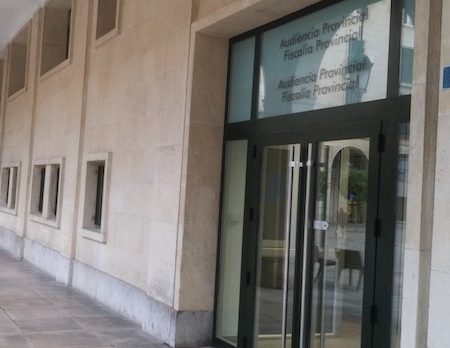As part of the “Plan Levante,” the Guardia Civil has been running three parallel operations that have led to the investigation of 15 people in the provinces of Alicante, Murcia, and Madrid for stealing more than 393,000 euros through “vishing,” “smishing,” and “business email compromise.”
In one case, a company in the region of Zaragoza lost 368,000 euros in a computer scam that comprised four unauthorised transfers from its bank account.
The fraud started when the affected organisation got mail telling them to reactivate their online banking access codes through a link that sent them to a phoney website that looked just like the real one.
In this way, the criminals got the access codes and used them to move money to the accounts of two businesses that were part of the illegal network.
The inquiry found a money-laundering network that used several bank accounts and fake corporations to shift money around and make it harder to track. They used three different ways: wire transfers, using credit cards to get cash, and sending money to banks in other countries.
The Guardia Civi found at least eight entities that were used to launder money and looked into 17 bank accounts (six of which were in other countries) that were used to obscure where the money came from.
The criminals bought firms that were having trouble with money and registered them in the names of other people. These people were paid to act like owners and open new bank accounts to get the fake transactions. A financial advisor in Murcia helped the buyers and sellers get together to buy these enterprises.
During this investigation, we found a criminal group with 13 members that was working from different parts of Spain and involved in corporations, crypto asset transactions, and bank accounts in Spain and other countries. They were found and looked into in the cities of Alicante, Cartagena (Murcia), Collado Villalba (Madrid), and Altea. They were accused of crimes like fraud, money laundering, and being part of a criminal organisation.
It was also confirmed that the money that was stolen was moved through bank accounts in Spain, Belgium, Germany, Portugal, the Netherlands, Estonia, the UK, and Malta.
Second online scam
The Guardia Civi started a separate inquiry after a person reported that 24 unauthorised transactions had been made to his bank account. The fake transactions were made at different stores in Spain and Europe, and the total sum stolen was €7,485.
The victim got a call from someone who claimed to be an employee of his bank and used a method called “vishing” to get him to approve two more transfers of 7,850 and 5,800 euros. However, the transfers were never completed because his real bank blocked them as a precaution because they thought they were suspicious.
Investigators found a man living in Orihuela who worked as a money mule, opening bank accounts that the group used to get the money from the scams. This man has been looked at for fraud and money laundering.
The most recent investigation, which was built on the previous ones, started after a company in Zaragoza complained that they had been scammed out of more than 18,000 euros using the “business email compromise” method.
In this example, the criminals changed the invoicing bank account of a company that the impacted company did business with, which forced the latter to send the money to an account controlled by the cybercriminals.
Because of the work that was done, the name of one of the suspects was found. They were found and questioned in Alicante as the person who was thought to have committed fraud, document forgery, money laundering, and identity theft.
Complaint online
The Guardia Civi wants the public to know that they can file reports online for five types of crimes: computer fraud that involves making fake charges with bank cards or other electronic payment methods, property damage, theft, vehicle theft, and theft from inside vehicles. They don’t have to go to an official facility to do this. Also, you can file two administrative actions online: losing or misplacing documents and finding documents.
They can do it through the Electronic Headquarters at https://guardiacivil.sede.gob.es/ or the website www.guardiacivil.es.
People who don’t have access to this way can still make an appointment by calling or going to their local Civil Guard station. You can also make appointments using the AGE Appointment app, which is available for Android and iOS.









No Comment! Be the first one.